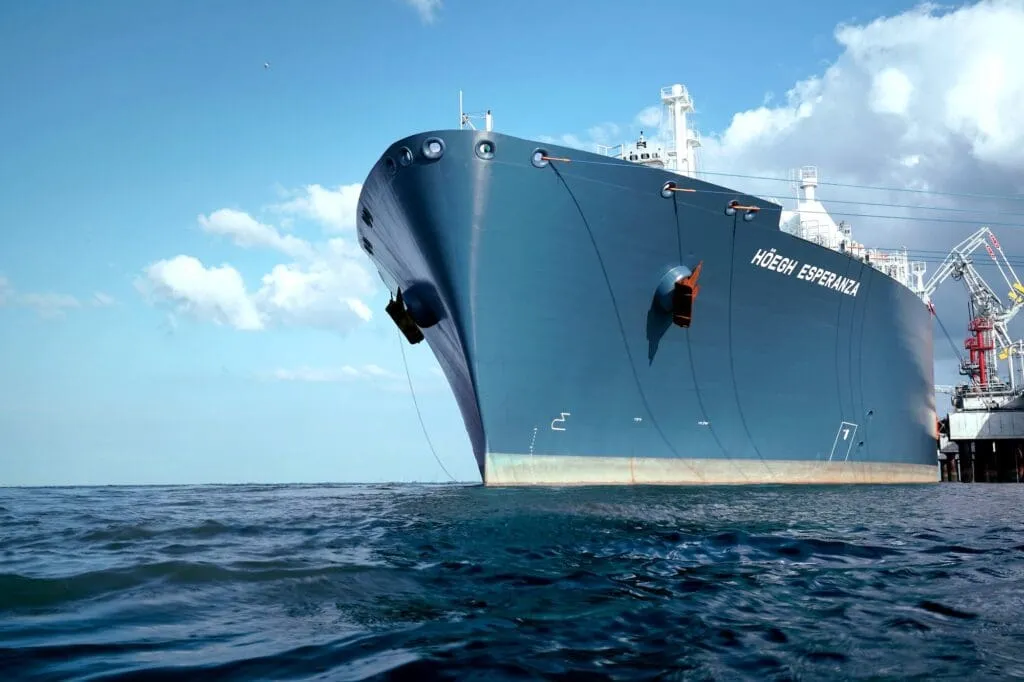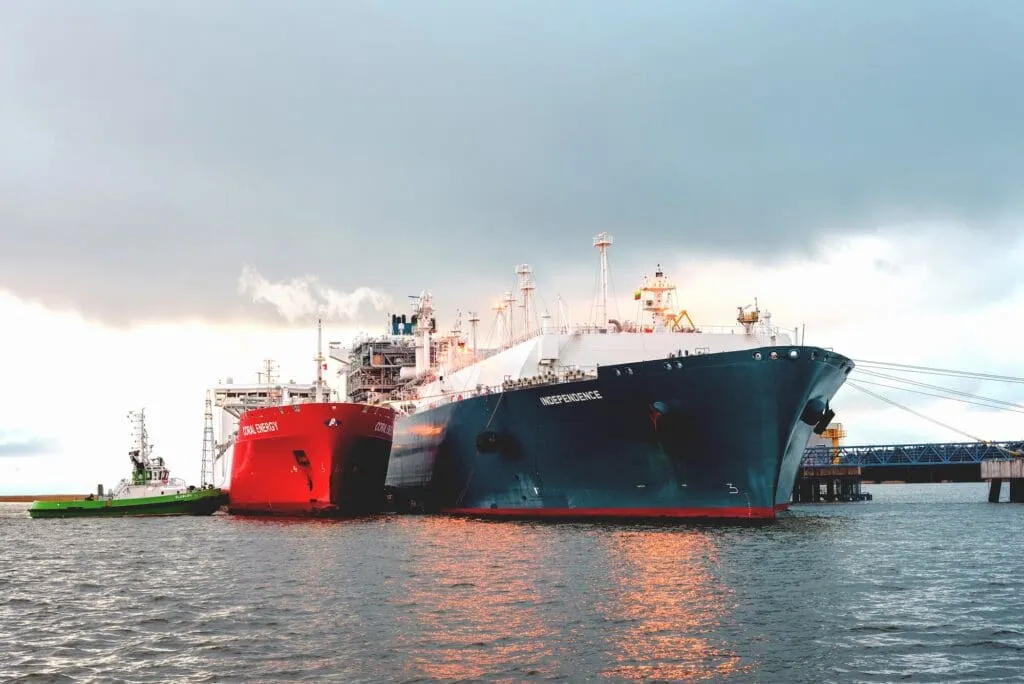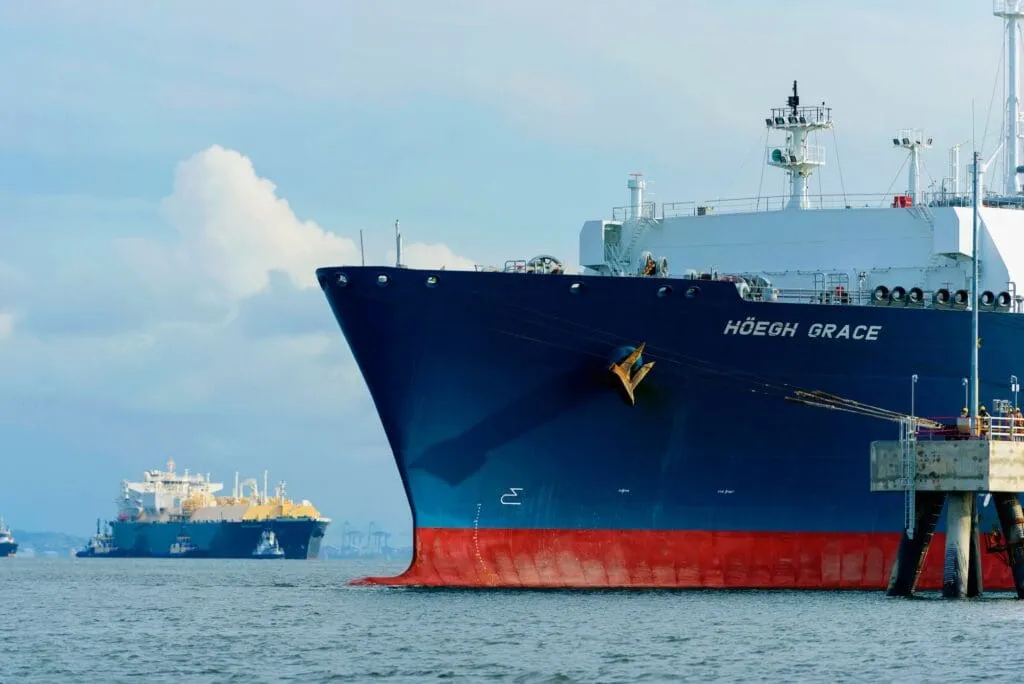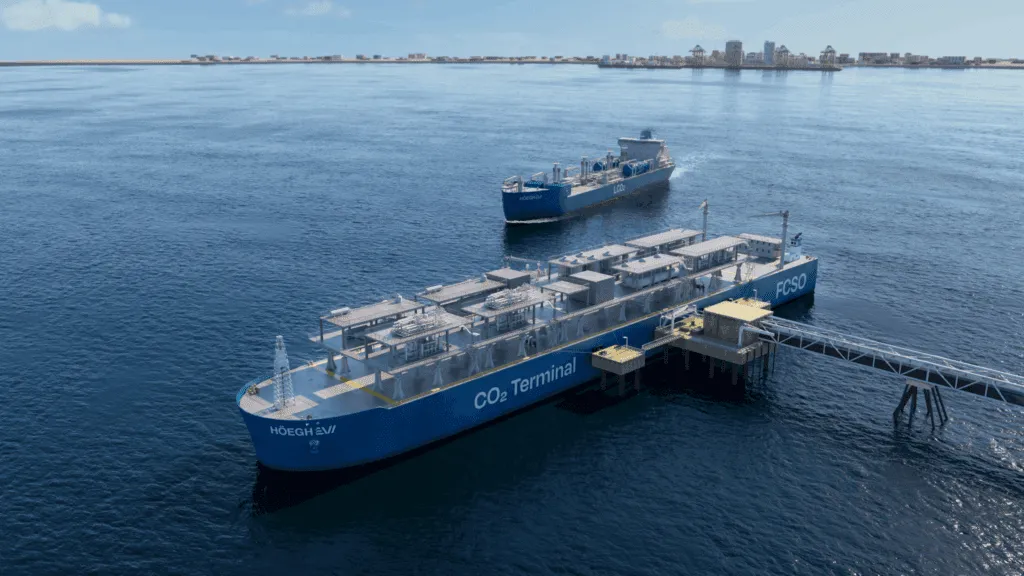Lowering emissions
Floating LNG terminals
Höegh Evi’s fleet of Floating Storage and Regasification Units (FSRUs) is one of the largest and most modern in the industry. An ideal LNG import solution for countries seeking energy security while transitioning to a decarbonized future, FSRUs offer an adaptable, lower emissions alternative to coal and oil. They work by receiving natural gas in a liquefied state, warming it until it transforms back into gas, then delivering it into the national energy supply. These vessels receive natural gas in a liquefied state at low temperatures, store it, and warm it until it transforms into vapor (regasification). The FSRU then delivers the natural gas into the gas pipeline network.
10
Floating terminals worldwide
3
LNG carriers
~70
Million average EU households – combined FSRU capacity combined FSRU capacity
Floating solutions have clear advantages to land-based import terminals.
Affordable
Secure
Fast
A balanced energy future
A diversified energy mix
For many countries, natural gas is a vital part of the energy mix. Gas is a lower emissions alternative to coal and oil and has a wide range of uses – from power production and transport to heating and cooking. It is also used as feedstock in chemical processes to produce fertilizers, hydrogen, plastics, paints and other products. As the world transitions to a diversified energy mix, gas can play a role in supporting renewables by providing greater energy resilience to cover intermittency or peaks in demand.

LNG’s role in energy security and transition
Natural gas is:
- A reliable and flexible energy source
- Converted to electricity and heat to be used by industry and households alike
- A lower carbon alternative to coal and oil with reduced greenhouse gas emissions from fuel combustion and improved air quality
Our projects
Delivering energy security worldwide
We enable any country with a coastline to access global LNG markets. Our critical LNG infrastructure and unparalleled experience allows countries to source and ship LNG globally. The result? An adaptable, secure, cost-effective solution compared to transporting gas via fixed pipelines. Our cost competitive LNG infrastructure provides energy security and independence, enabling the transition to a low carbon future.

Fast-tracking Germany to energy security

Delivering energy independence to Europe

Providing stable and sufficient gas supply to Colombia
Latest news
